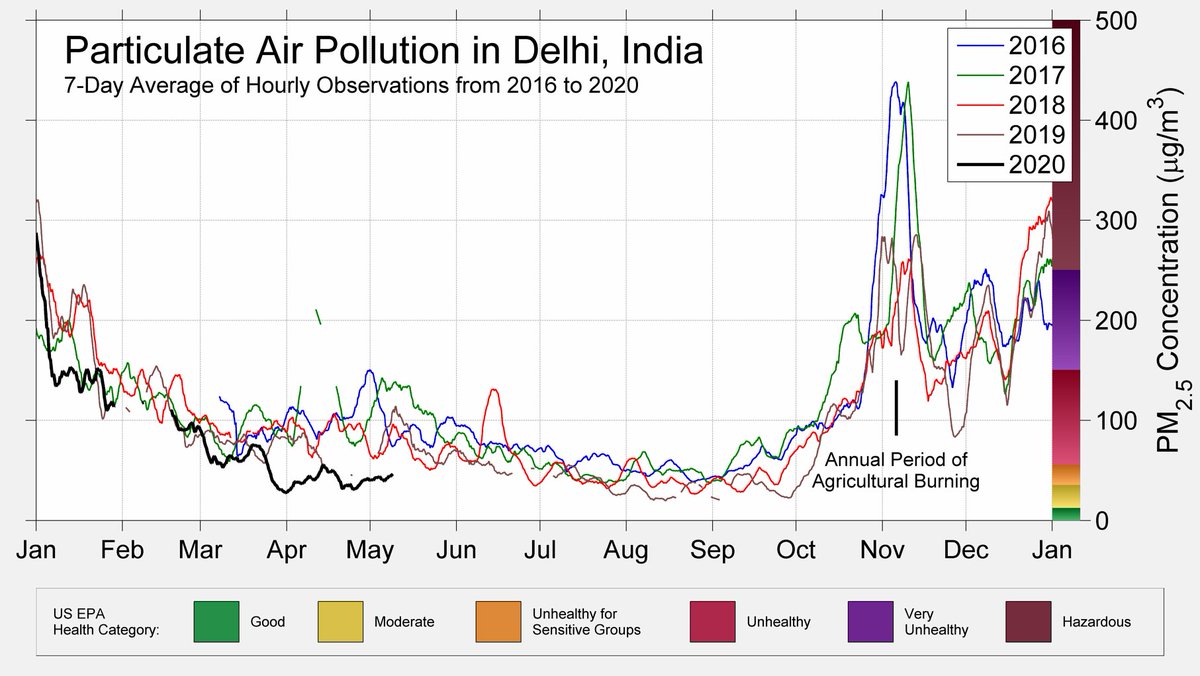
Climate science, data, & quality analysis. Independent, non-governmental, open-source. 2022 report: https://t.co/qNxQDsaDUW
How to get URL link on X (Twitter) App


 Berkeley Earth's estimate of the global mean temperature in 2024 stands at 1.62 ± 0.06 °C (2.91 ± 0.11 °F) above the average during the period 1850 to 1900.
Berkeley Earth's estimate of the global mean temperature in 2024 stands at 1.62 ± 0.06 °C (2.91 ± 0.11 °F) above the average during the period 1850 to 1900.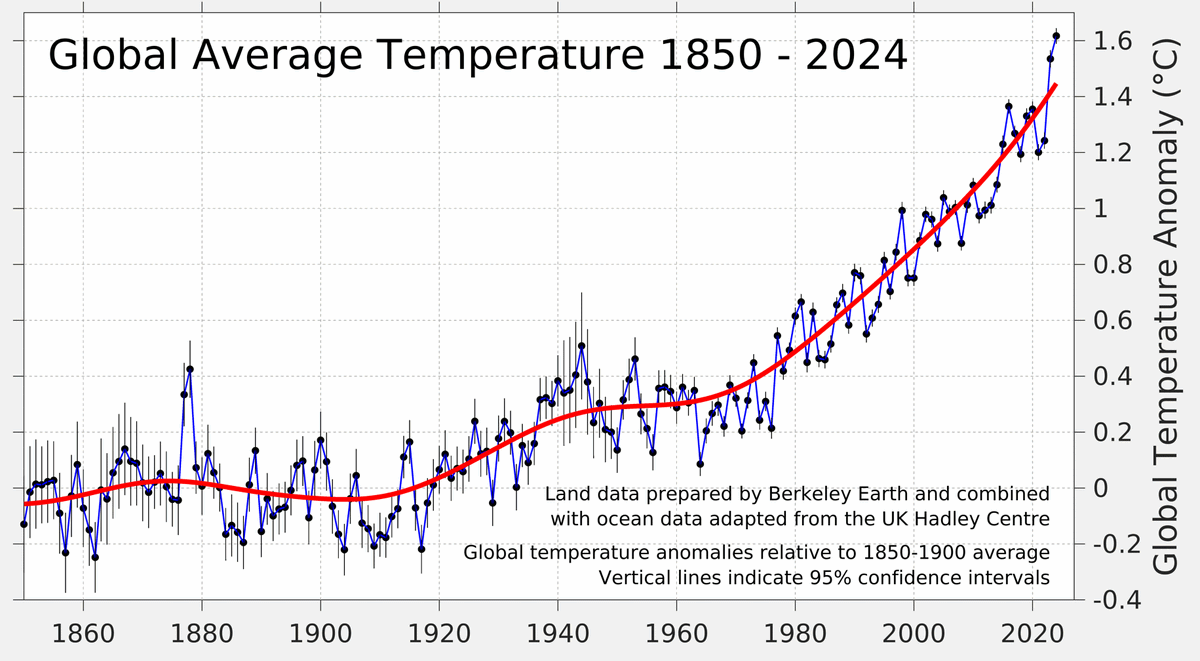
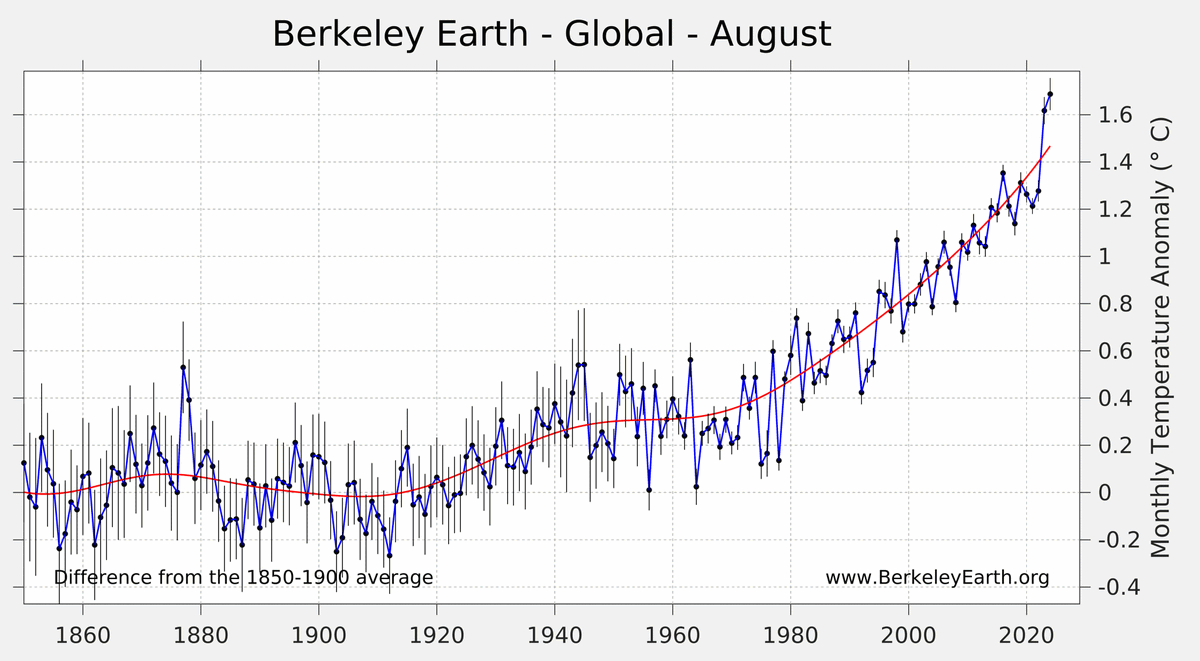
 Note: This temperature update was a few weeks delayed, so we are talking about August 2024 now even though it is already October.
Note: This temperature update was a few weeks delayed, so we are talking about August 2024 now even though it is already October.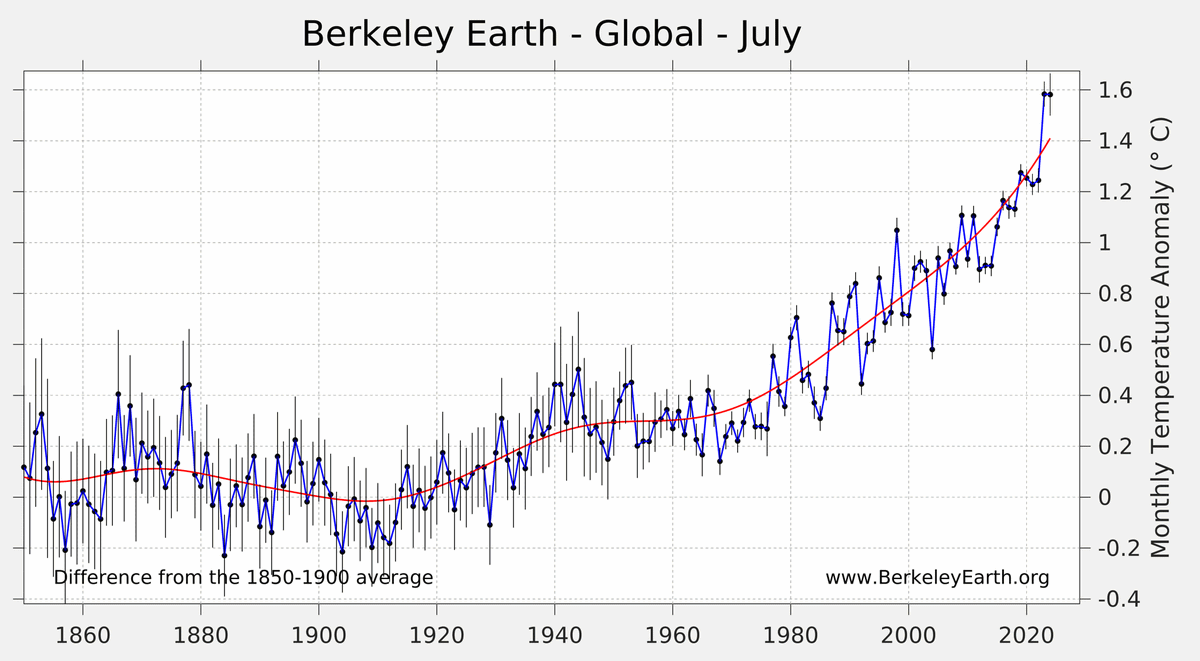
 Every month since June 2023 — 14 consecutive months — have each either set a new monthly global average temperature record or tied the record.
Every month since June 2023 — 14 consecutive months — have each either set a new monthly global average temperature record or tied the record.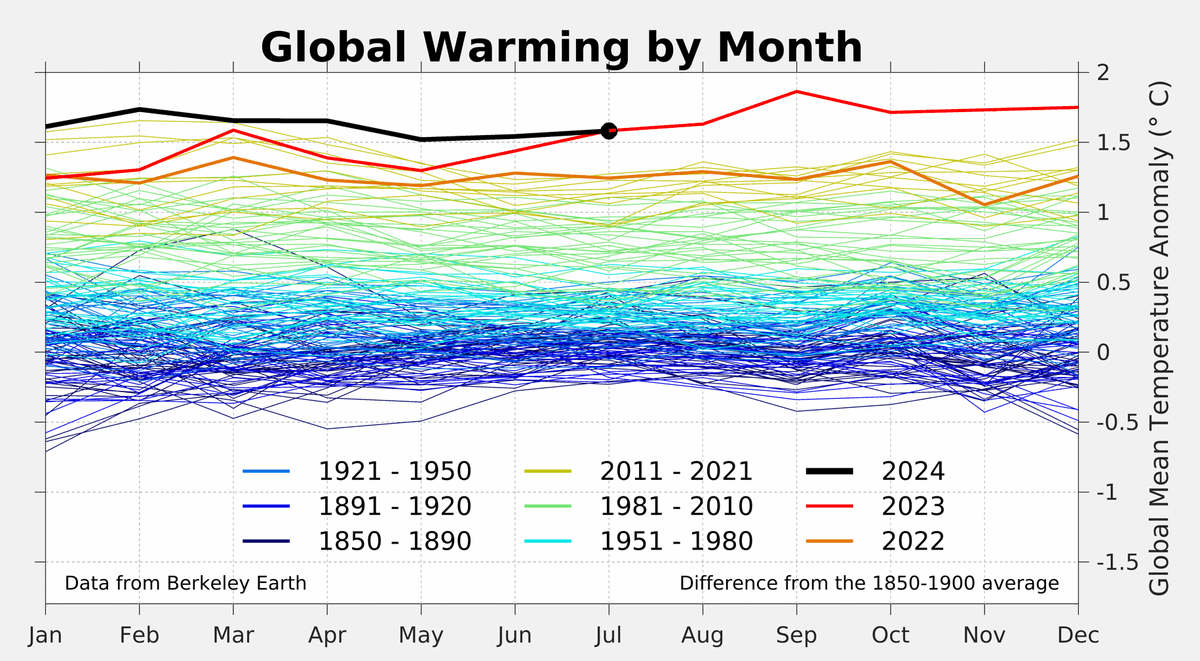
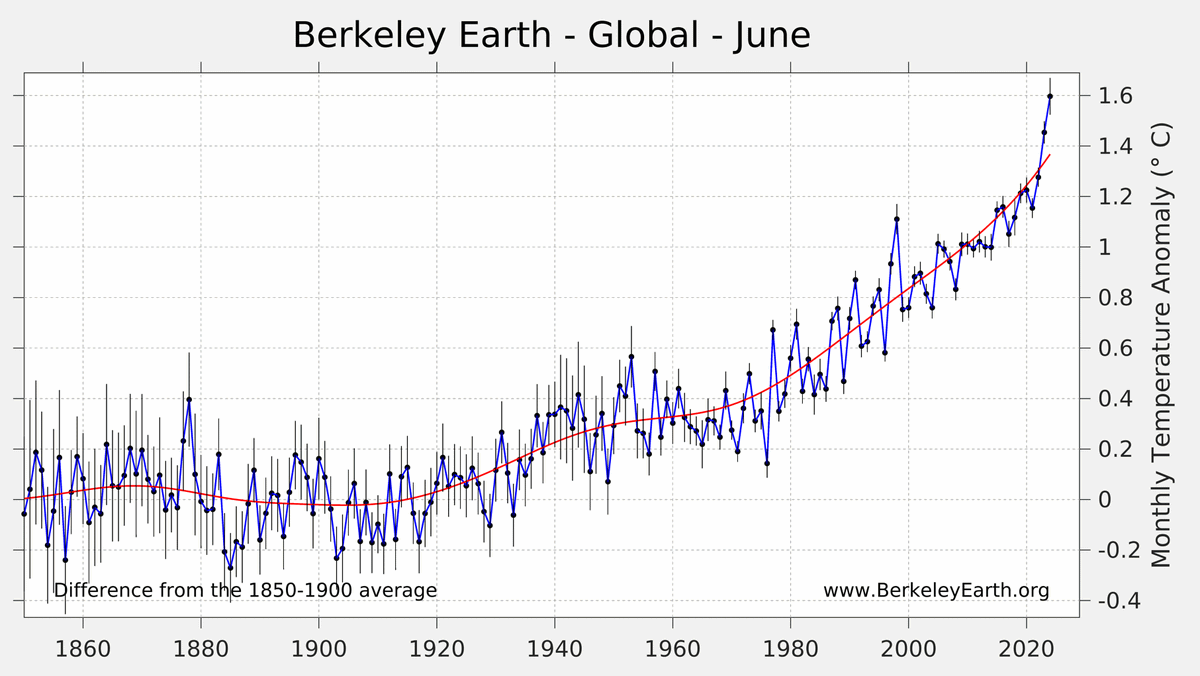
 Boosted by El Niño, global warming, and other factors, each of the last 13 months have set new monthly global temperature records.
Boosted by El Niño, global warming, and other factors, each of the last 13 months have set new monthly global temperature records.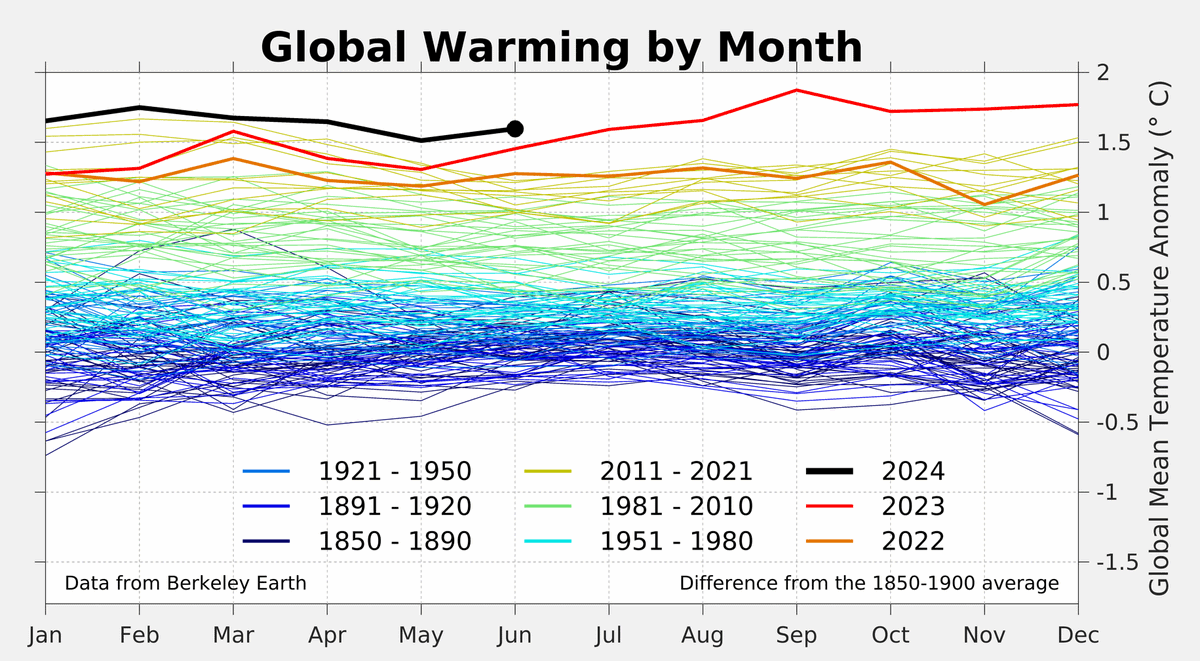
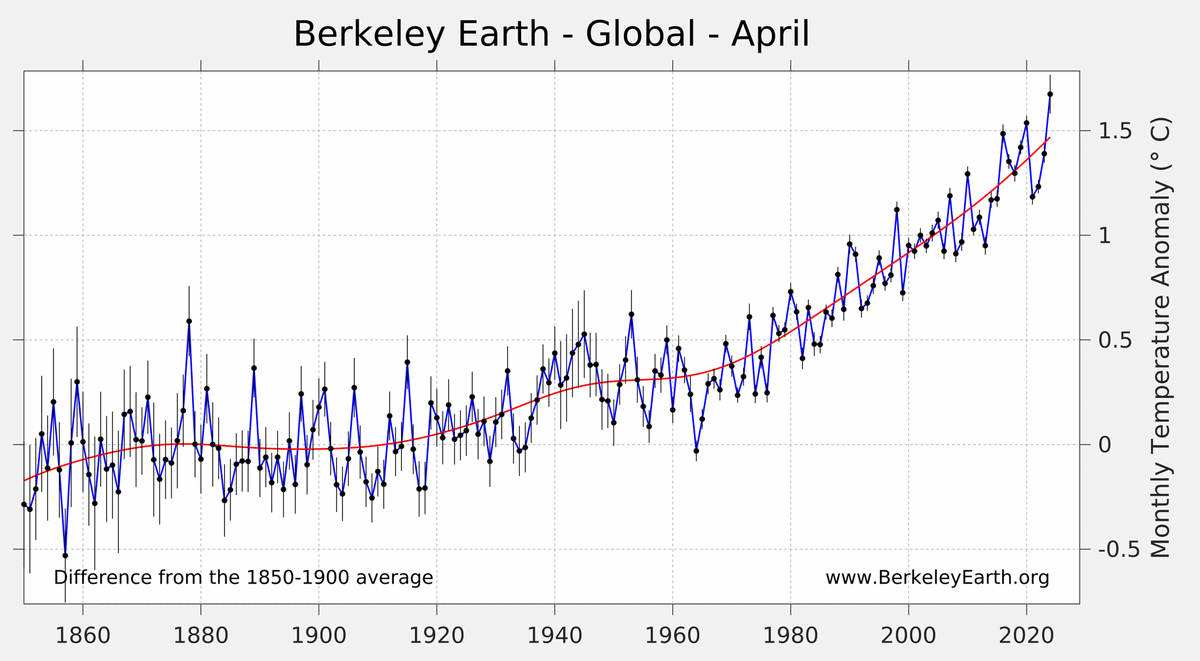
 April 2024 was 1.67 ± 0.11 °C (3.01 ± 0.19 °F) above the 1850 to 1900 average.
April 2024 was 1.67 ± 0.11 °C (3.01 ± 0.19 °F) above the 1850 to 1900 average.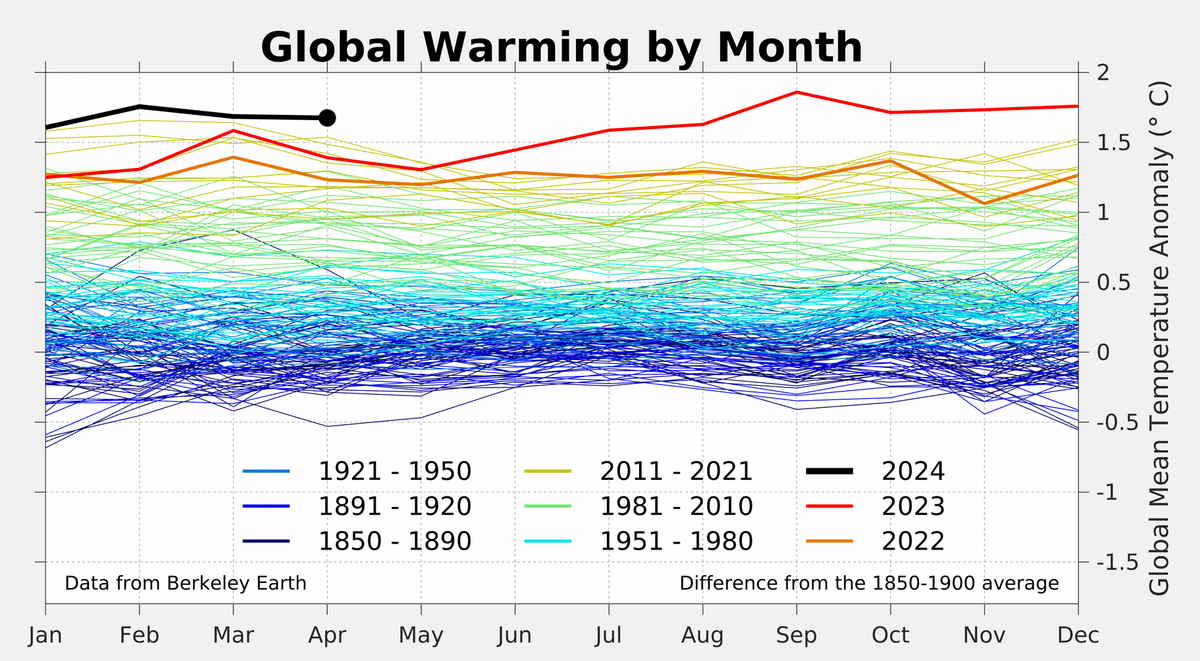
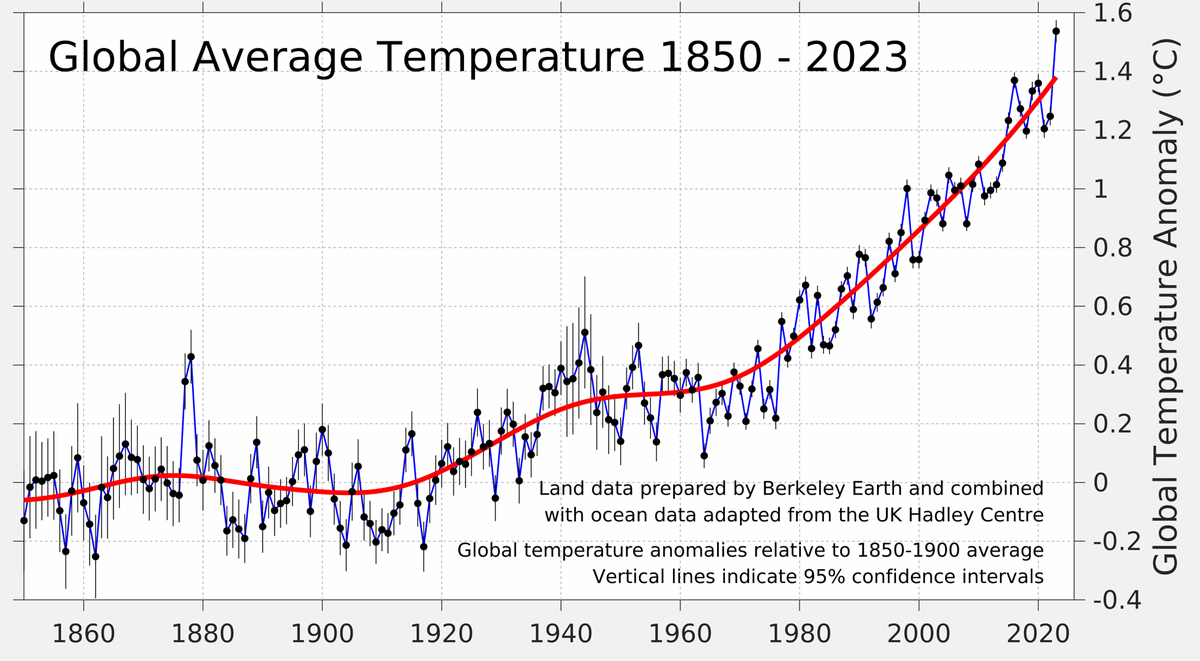
 17% of the Earth's surface experienced a locally record high annual average temperature in 2023.
17% of the Earth's surface experienced a locally record high annual average temperature in 2023.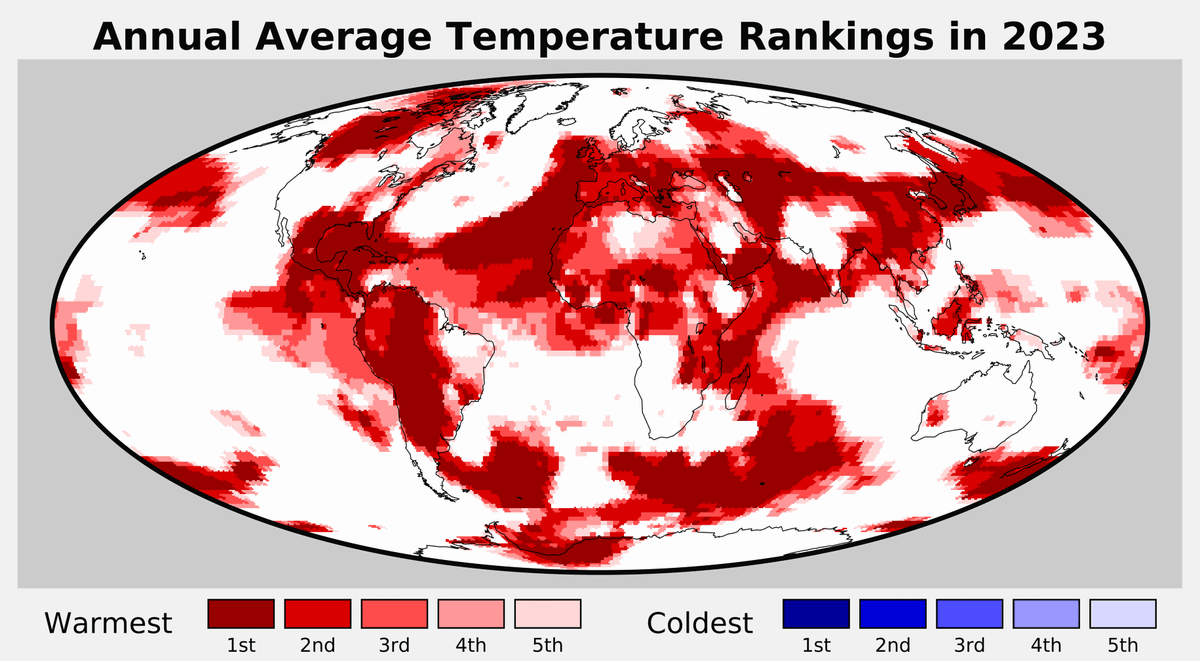
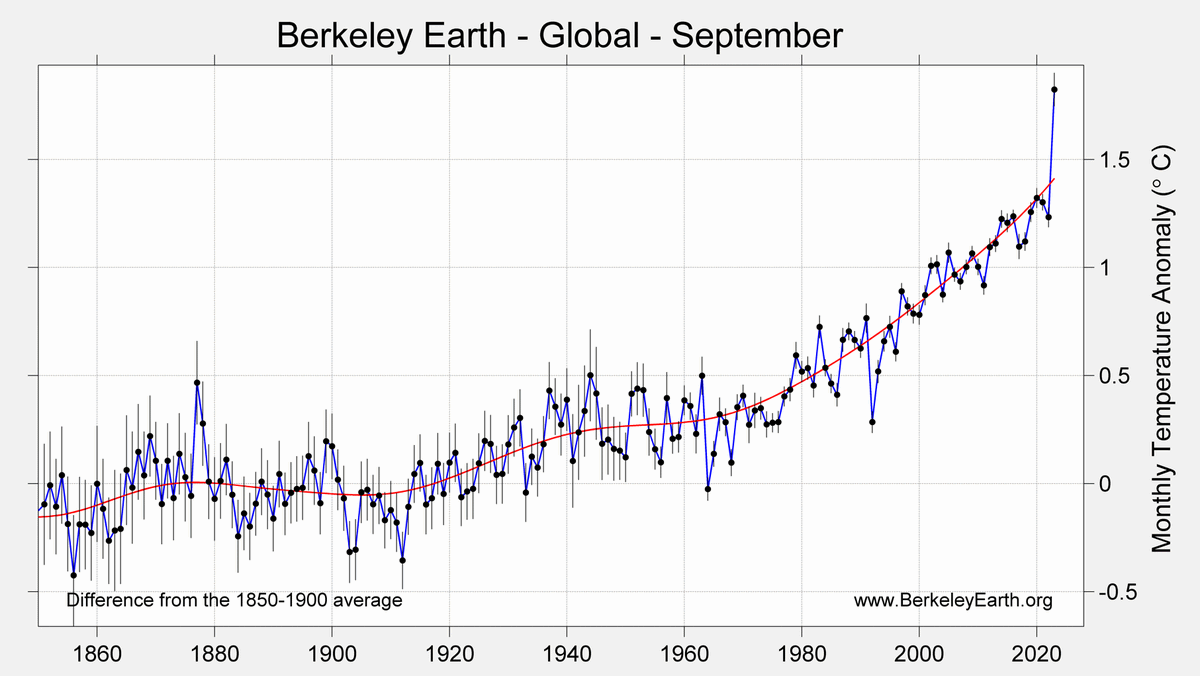
 The global mean temperature in September 2023 was 1.82 ± 0.09 °C (3.28 ± 0.17 °F) above the 1850 to 1900 average, continuing the run of extraordinary records.
The global mean temperature in September 2023 was 1.82 ± 0.09 °C (3.28 ± 0.17 °F) above the 1850 to 1900 average, continuing the run of extraordinary records.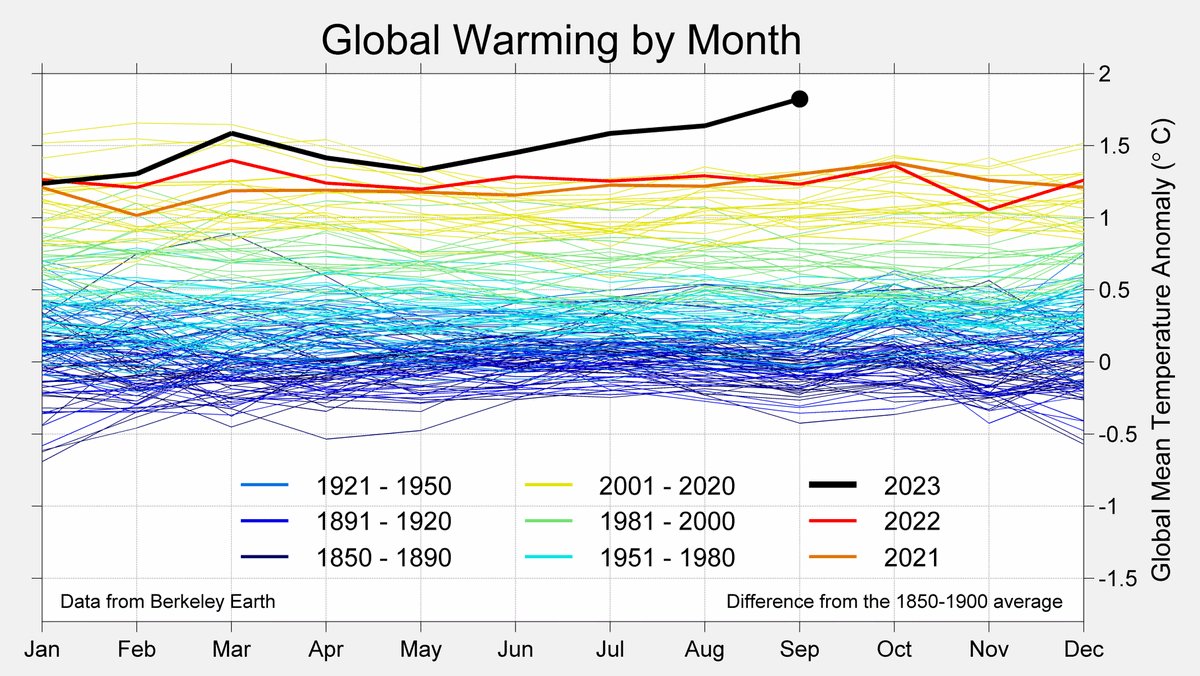
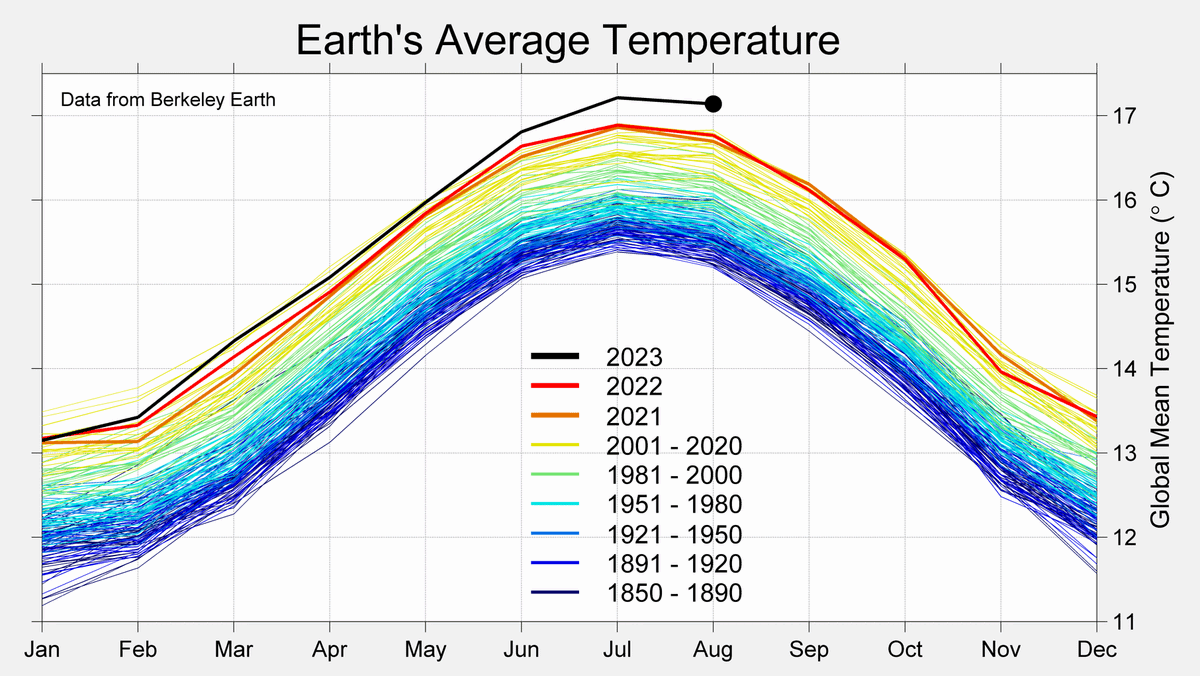
 Globally, August 2023 was record-shatteringly warm.
Globally, August 2023 was record-shatteringly warm.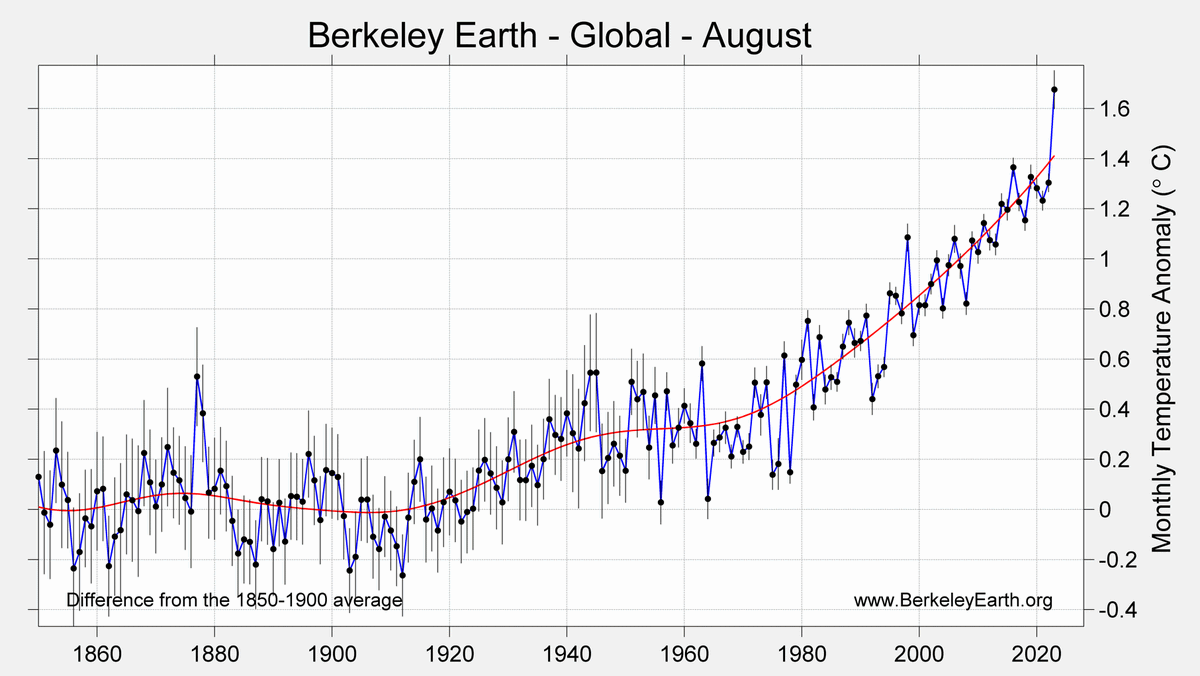
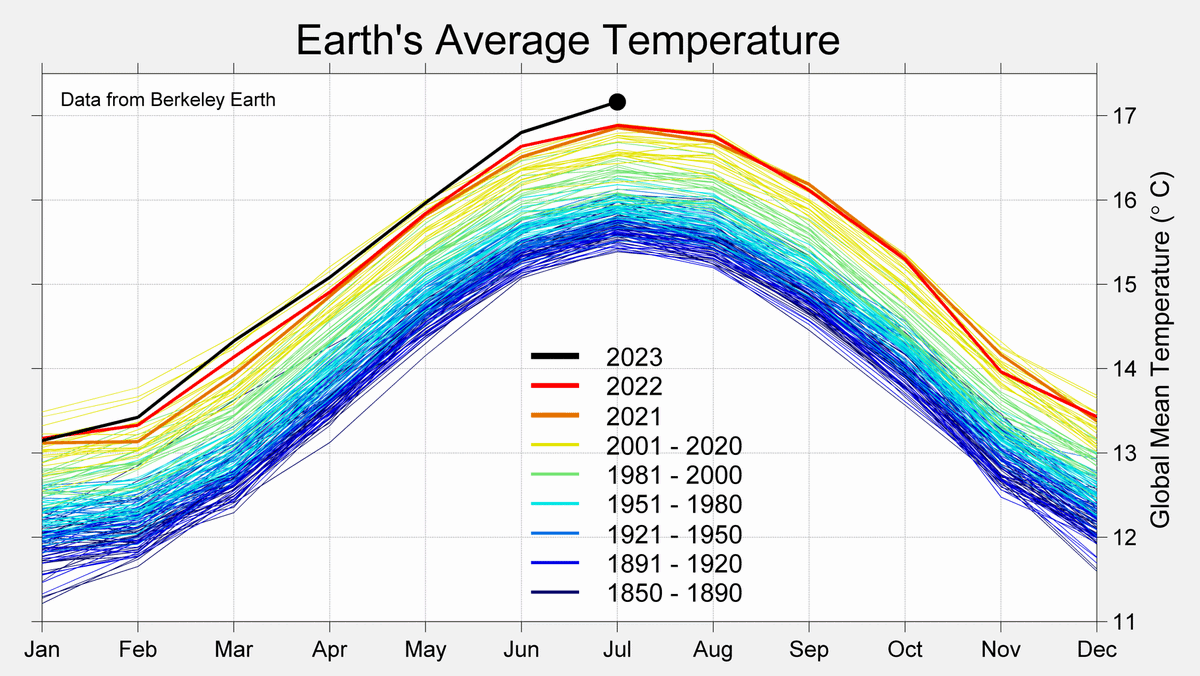
 The global average temperature in July — 1.54 ± 0.09 °C (2.77 ± 0.16 °F) above the 1850 to 1900 average —greatly exceeded all previously measured Julys.
The global average temperature in July — 1.54 ± 0.09 °C (2.77 ± 0.16 °F) above the 1850 to 1900 average —greatly exceeded all previously measured Julys.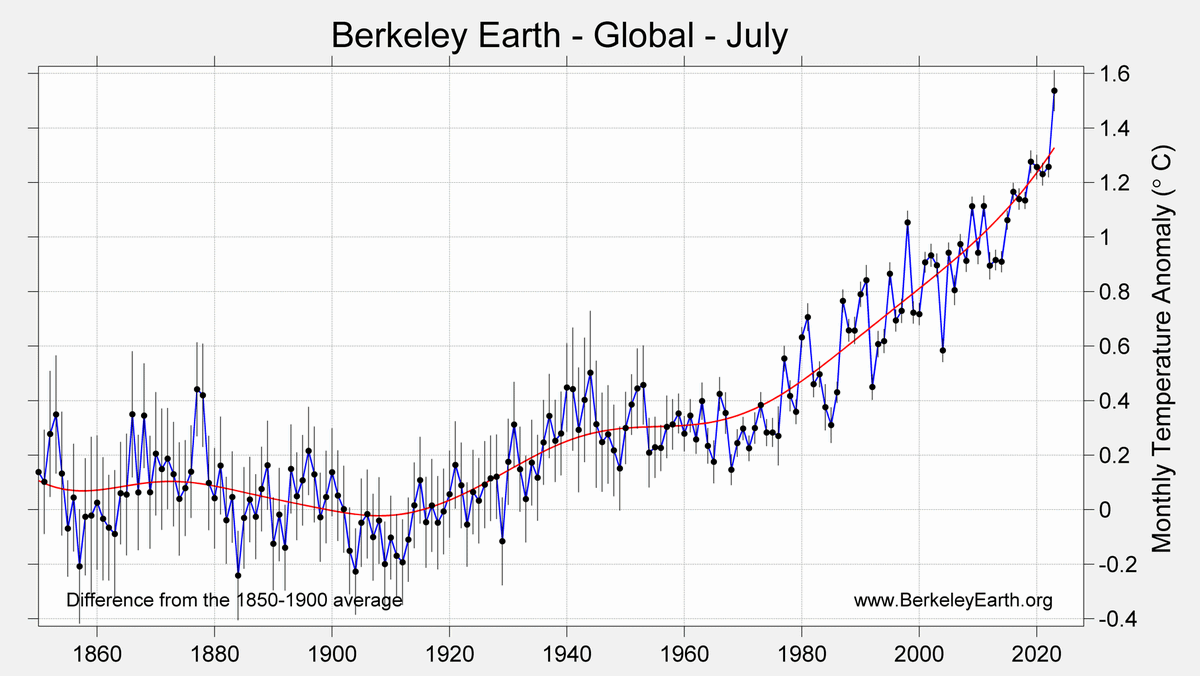
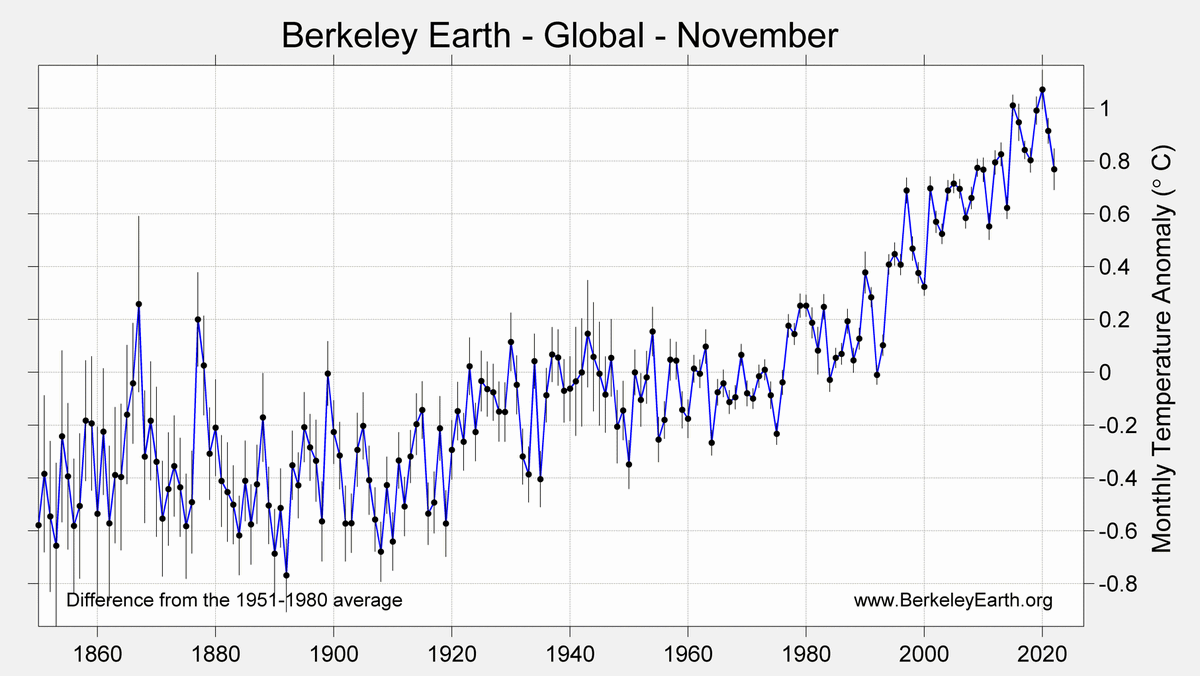
 November 2022 was sharply cooler than October, with the global average falling more than 0.2 °C (0.4 °F), and producing the coldest month since February 2021.
November 2022 was sharply cooler than October, with the global average falling more than 0.2 °C (0.4 °F), and producing the coldest month since February 2021.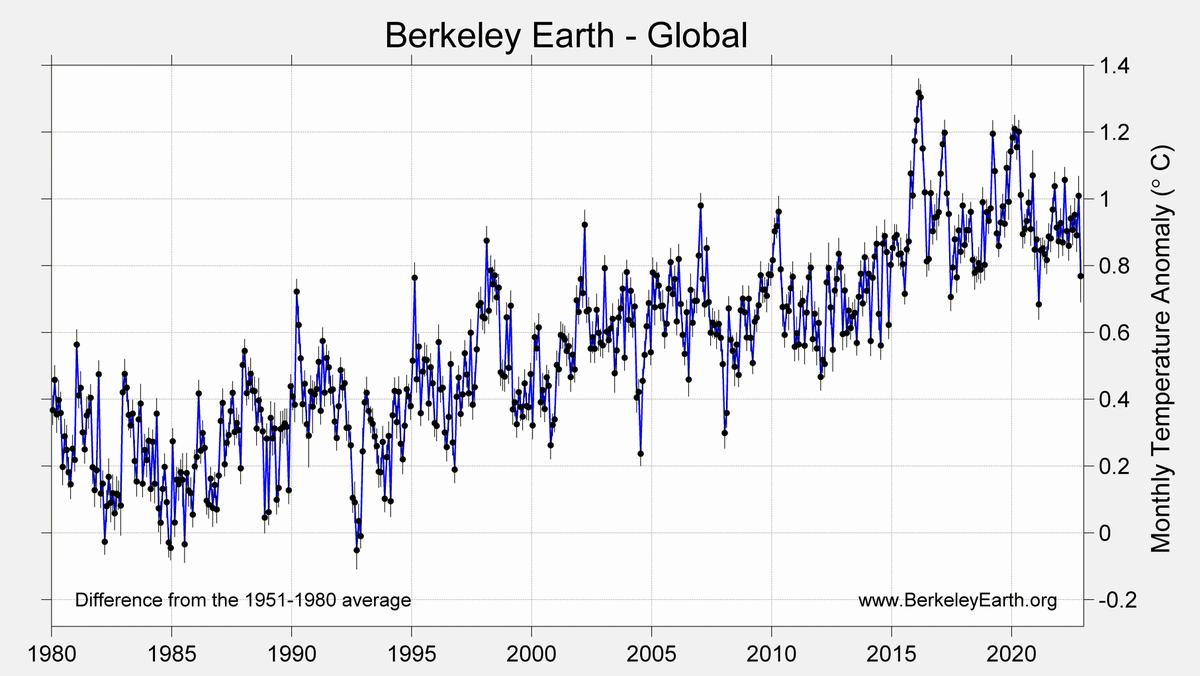
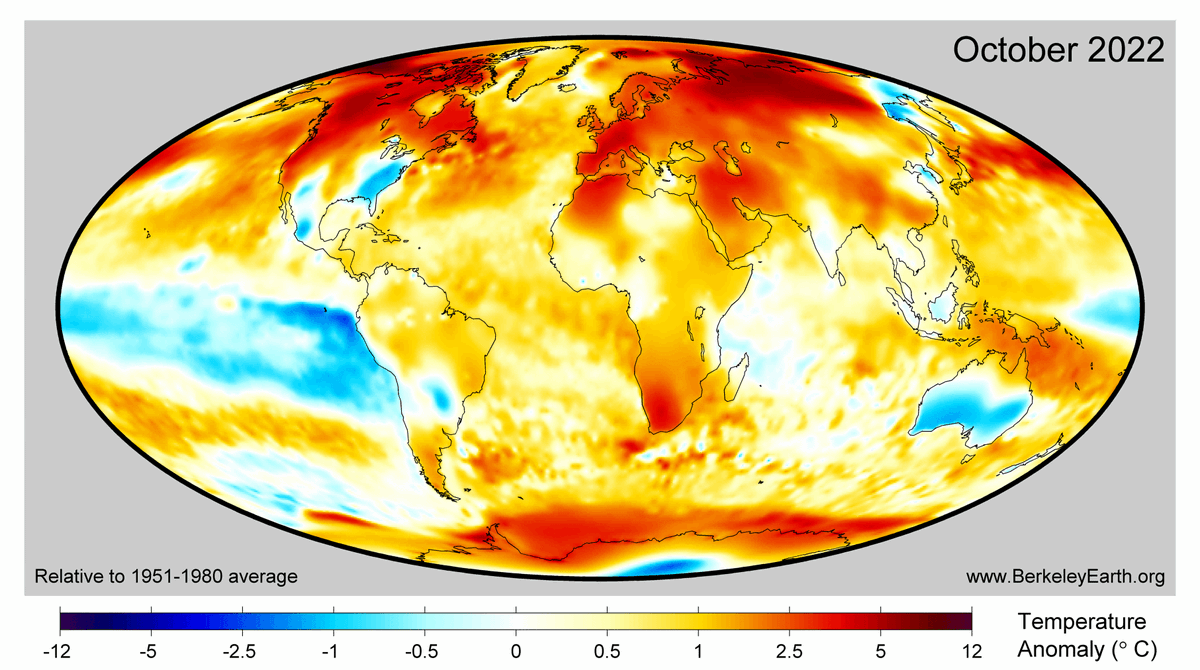
 This October was the third warmest on record globally, with temperatures 1.05 °C (1.89 °F) above the 1951-1980 average.
This October was the third warmest on record globally, with temperatures 1.05 °C (1.89 °F) above the 1951-1980 average.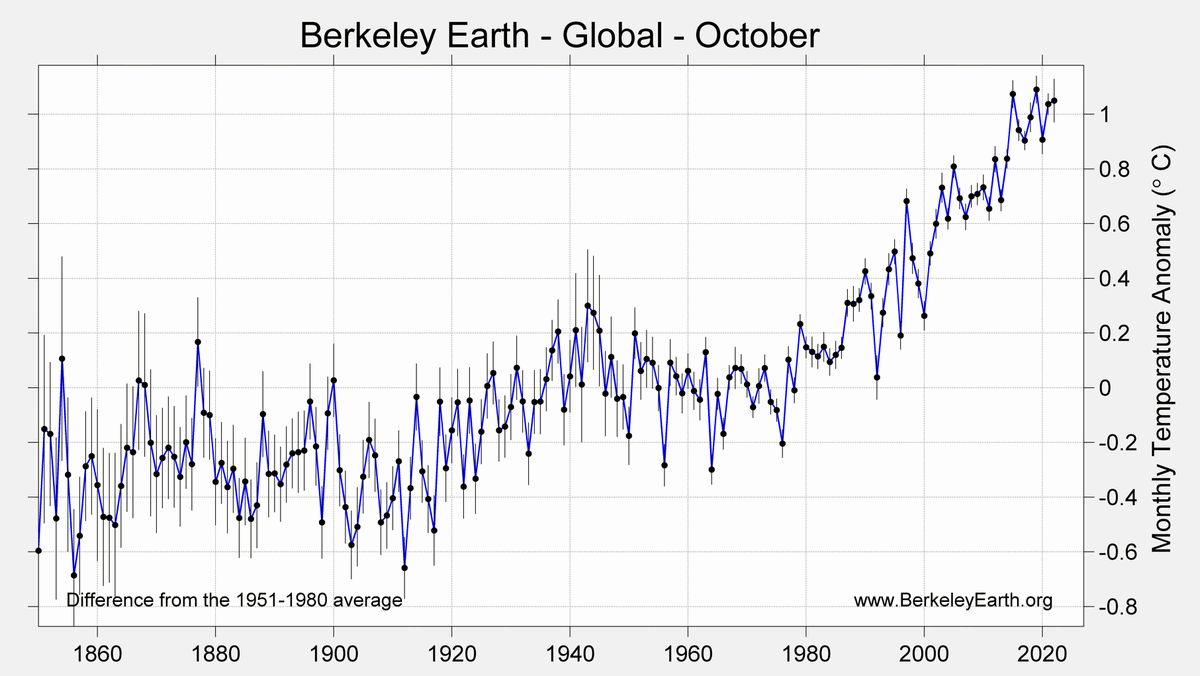
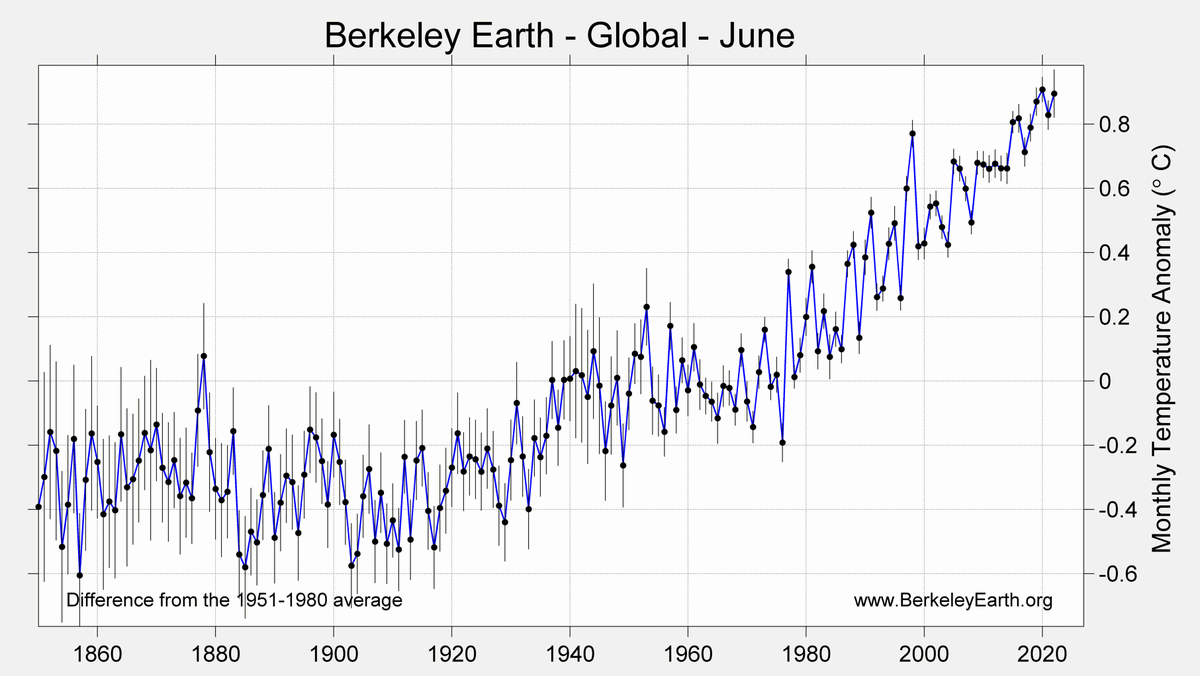
 June 2022 shows warmth in most regions, with the major exception of the Eastern Equatorial Pacific, which is cooled by the ongoing La Niña event.
June 2022 shows warmth in most regions, with the major exception of the Eastern Equatorial Pacific, which is cooled by the ongoing La Niña event.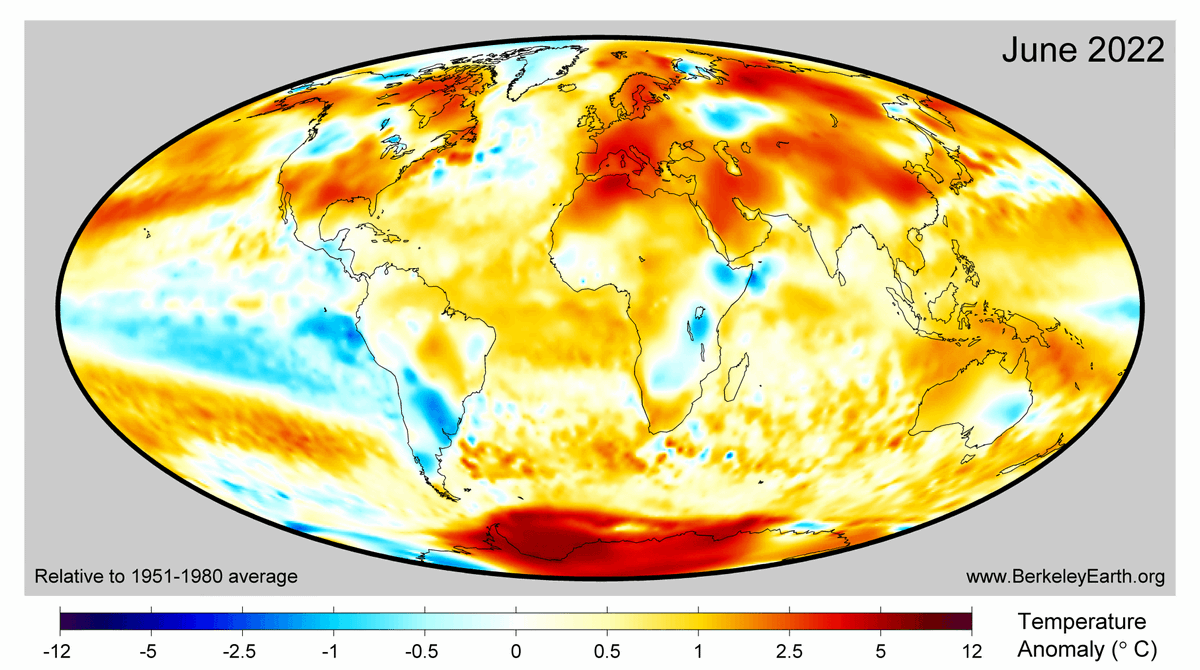
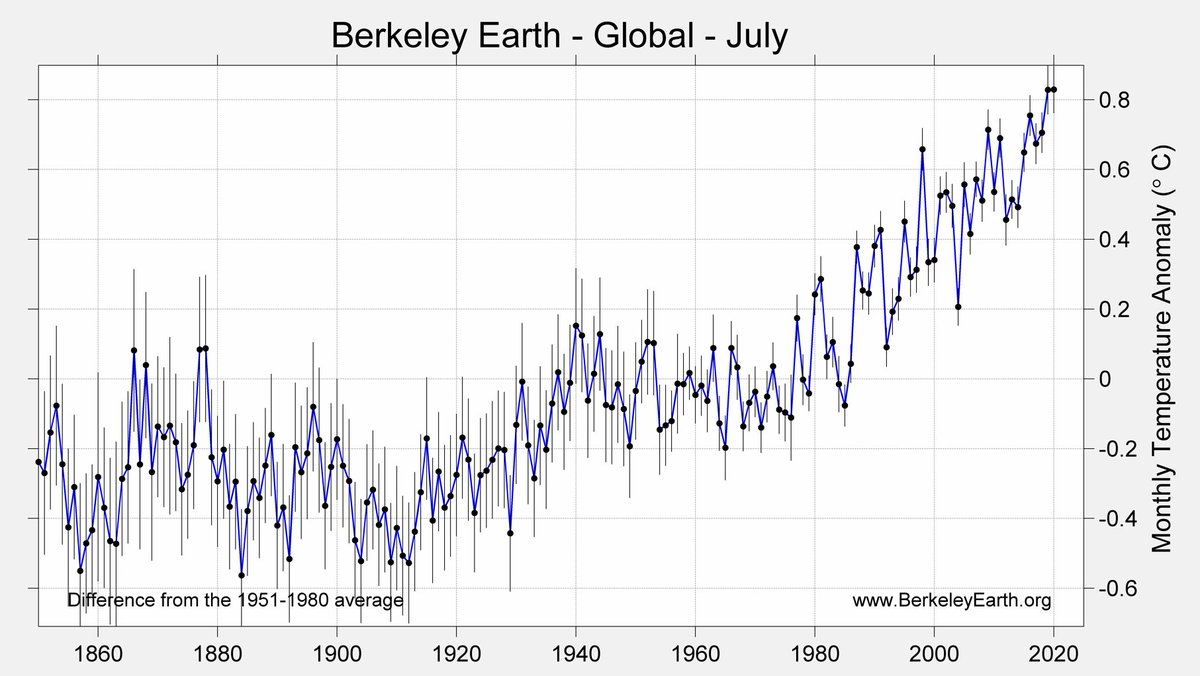

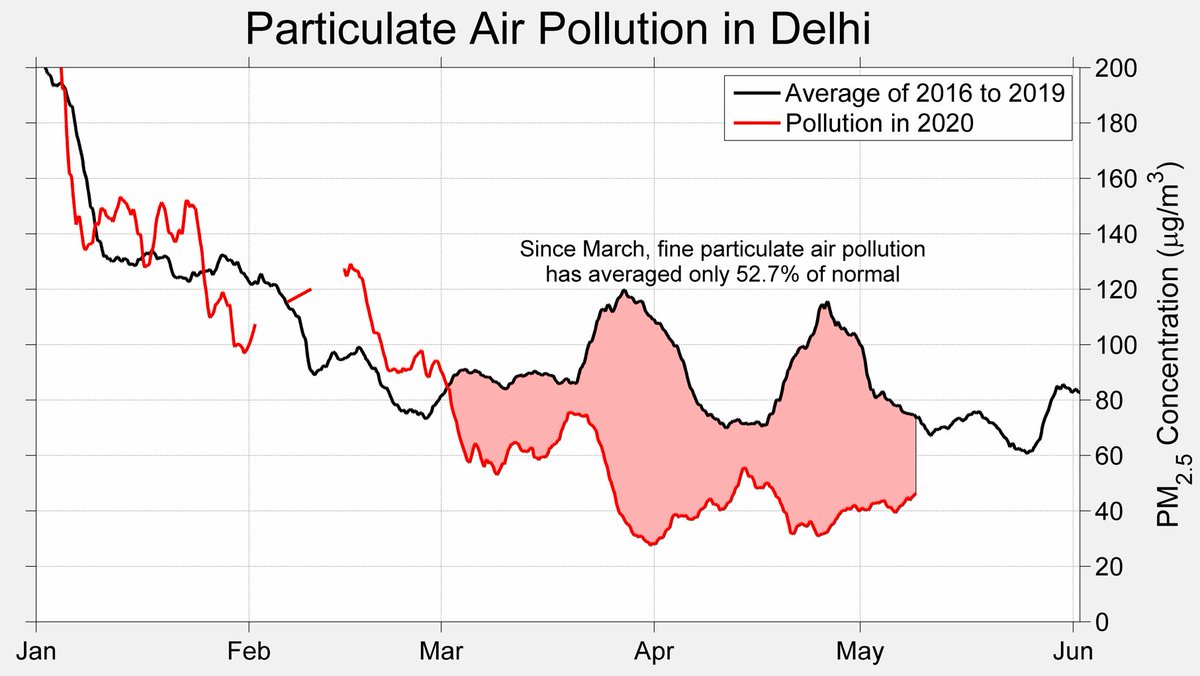
 As it happens, air pollution already tends to be lower March to September than it is during periods of colder weather.
As it happens, air pollution already tends to be lower March to September than it is during periods of colder weather.